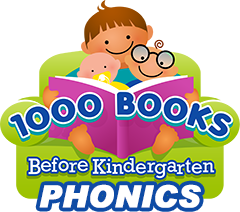In an interesting study, titled “Educational Games for Brain Health: Revealing Their Unexplored Potential Through a Neurocognitive Approach,” researchers sought to review two lines of evidence involving the currently unexplored potential of educational games to promote brain health: first, gaming with specific neurocognitive demands (e.g., executive control), and second, educational learning experiences (e.g., studying foreign languages) improve brain health markers.
The study noted that playing games is one of the most popular leisure activities and that 59% of Americans play video games. Video games in turn offer a more interactive experience than simply watching a video or reading a book. Video games typically offer use control, competition, levels of difficulty, and rewards. These characteristics of video games are what make them appealing. Therefore, it comes as no surprise that educational games aim to use these motivations to enhance the learning process.
The 1000 Books Before Kindergarten complete phonics program includes three of the most effective learning games, i.e., word search games, memory games, and matching games. These three game types have been proven effective in helping a child learn. Word searches emphasize pattern recognition and help a child develop their memory and problem-solving skills. When a child first learns phonics, a lot of time is spent on decoding, which uses quite a bit of brainpower. Decoding takes away from reading and comprehension. Therefore, fluency in word recognition (decoding) has been attributed to being critical for reading. Word searches will help your child develop fluency. Memory games help improve a child’s brain attention, concentration, and focus. Finally, matching games help children learn about early representation and problem solving. See for yourself the benefits of the 1000 Books Before Kindergarten complete phonics program.

